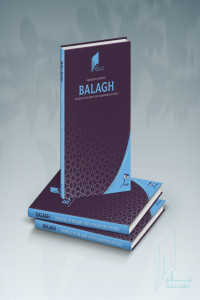The impact of odd Quran recitations on the verbal spread of language words.
The impact of odd Quran recitations on the verbal spread of language words.
___
- إتحاف فضلاء البشر في القراءات الأربعة عشر: لأحمد بن محمد بن أحمد الدمياطي الشهير بالبناء، 2006 م. ، تحقيق أنس مهرة، دار الكتب العلمية بيروت، لبنان، ط 3
- الإتقان في علوم القرآن: لجلال الدين السيوطي، تحقيق محمد أبو الفضل ابراهيم، الهيئة المصرية العامة للكتاب، 1974 م.
- اصلاح المنطق: لابن السكيت، تحقيق محمد مرعب، دار إحياء الثرات العربي ط 2002 م. إعراب القراءات الشواذ: لأبي البقاء العكبري، دراسة وتحقيق محمد السيد أحمد عزوز، عالم الكتب 2010 م. ، للطباعة والنشر، بيروت، لبنان، ط 2
- إعراب القرآن: للنحاس، وضع حواشيه وعلق عليه عبد المنعم خليل ابراهيم، محمد علي بيضون، دار 1421 ه . الكتب العلمية، بيروت، لبنان، ط 1
- البحر المحيط في التفسير: لأبي حيان الأندلسي، تحقيق صدقي محمد جميل، دار الفكر، بيروت، لبنان، 1420 ه.
- البذور الزاهرة في القراءات العشر المتواترة: لعبد الفتاح القاضي، مطبعة مصطفى البابي الحلبي وأولاده، 1955 م.
- البرهان في علوم القرآن: للزركشي، تحقيق محمد أبو الفضل ابراهيم، دار إحياء الكتب العربية، عيسى 1957 م. ، البابي الحلبي وشركاؤه، ط 1
- تأويل مشكل القرآن: لابن قتيبة، تحقيق: إبراهيم شمس الدين، دار الكتب العلمية، بيروت تهذيب اللغة، الأزهري: محمد بن أحمد، تحقيق: محمد عوض مرعب، دار إحياء الثرات العربي، .2001 ، بيروت، ط 1
- الجامع لأحكام القرآن، المشهور بتفسير القرطبي: للقرطبي، تحقيق أحمد البردوني وإبراهيم اطفيش، 1964 م. ، دار الكتب المصرية، القاهرة، ط 2
- 1987 م. ، جمهرة اللغة: لابن دريد، تحقيق رمزي منير بعلبكي، دار العلم للملايين بيروت، لبنان، ط 1 جمهرة الأمثال: لأبي هلال العسكري، دار الفكر، بيروت .
- الخصائص: لابن جني، الهيئة المصرية العامة للكتاب، ط 4 الدر الم صون في علوم الكتاب المكنون: للسمين الحلبي، تحقيق د. أحمد محمد الخراط، دار القلم، دمشق، سوريا د. ت
- Başlangıç: 2021
- Yayıncı: Karabük Üniversitesi
The Temporary Endowments: Its Nature and Public Interest
Mohamed Amine HOCİNİ, Abdulla Faroog IBRAHİM
Mohd Roslan Bin MOHD NOR, Souheila SEGGANİ
Rabi’atul Athirah Binti Muhamad ISA, Mohd Faizulamri Bin Mohd SAAD, Sabri MOHAMAD, Latifah Abdul MAJİD, Nik Md Saiful Azizi B Nik ABDULLAH
Interdiction of Prodigal between the Interest and Humanity Jurisprudential study
Khaled DERSHWİ, Amer ALDERSHEW
Patients’ rights in the hadiths of the Prophet (P.B.U.H)
Yakup KOÇYİĞİT, Naji ALSABSABİ
Regulations of the Muslim Governor's Economic Execution in Light of the Legal Policy
The Malaysian Experience in Sustainable Development: The Educational Sector as a Model
Doğan Delil GÜLTEKİN, Hossam El-din Ibrahim MOHAMED
Arab Modernists and Maqasid Shariah: a Critical Analysis
